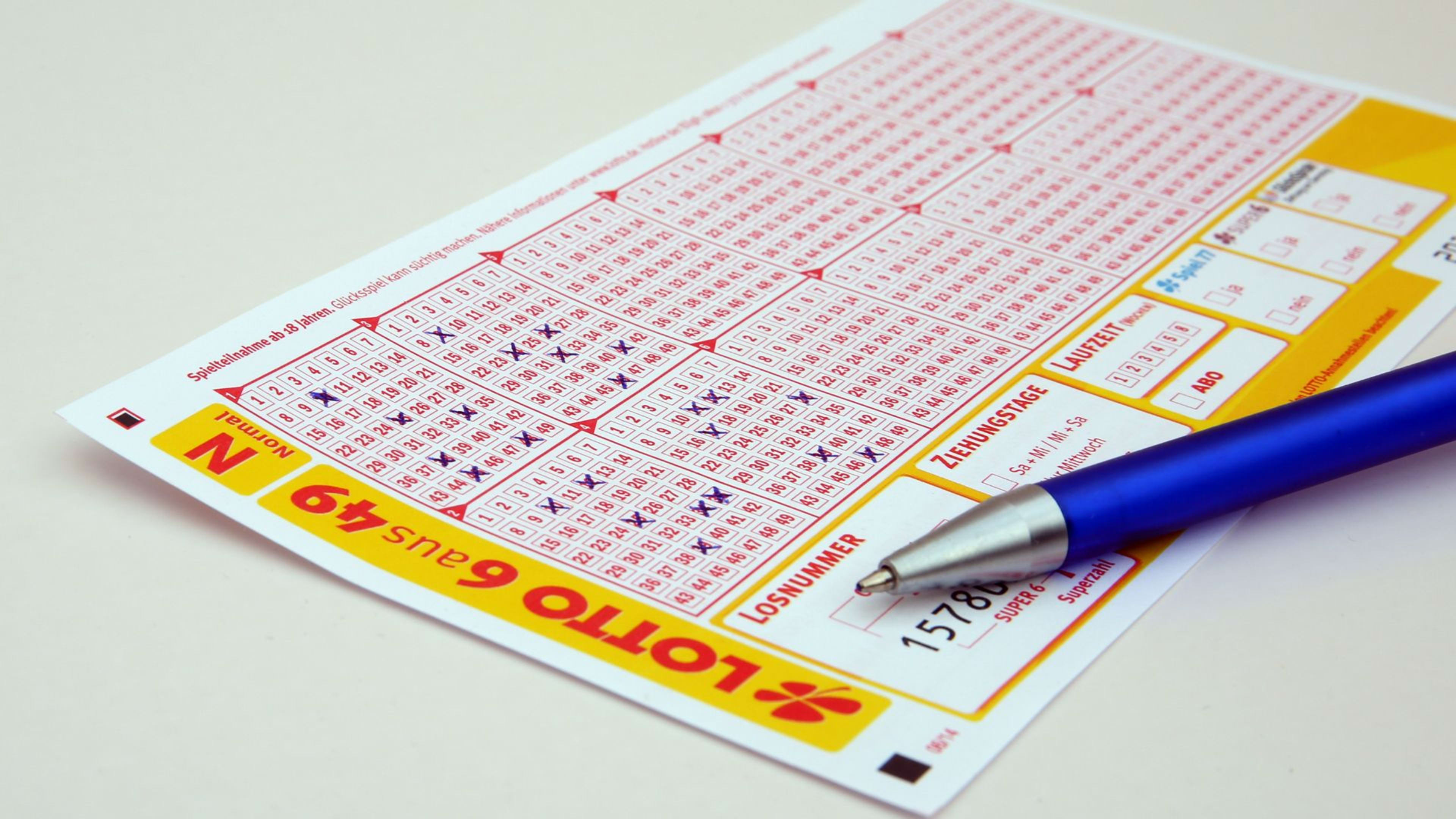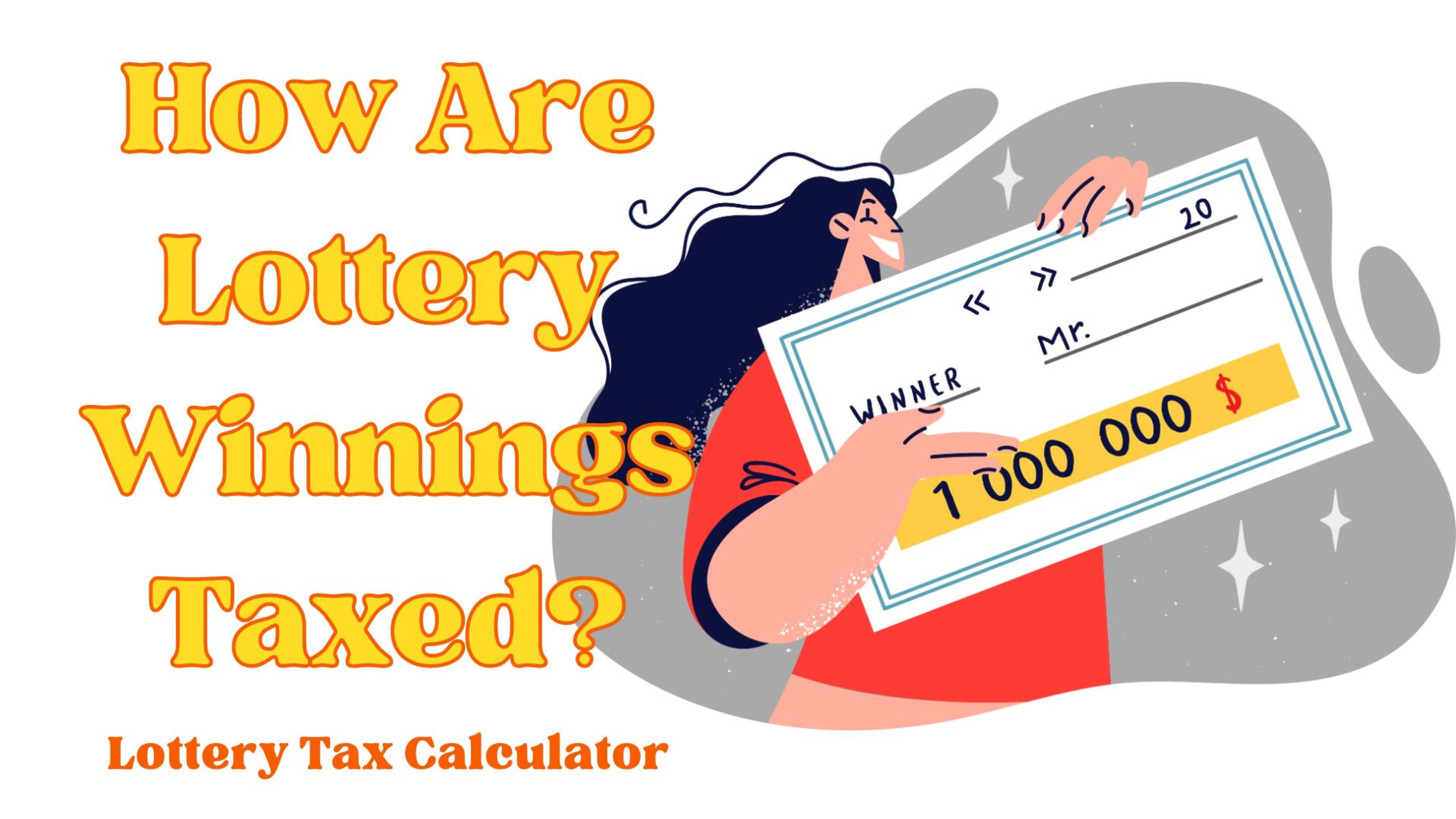Dreaming about winning the lottery often involves visions of yachts, mansions, and endless vacations. But the tax man is also waiting in the wings to take his share. This article aims to demystify the tax obligations associated with lottery winnings in Canada. We'll break down what percentage of your winnings you can expect to part with, offering examples to make things crystal clear.
Tax-Free Lottery Winnings in Canada
Great news for Canadian players! For most lottery winnings in Canada, you generally don't need to worry about paying income tax. This applies to winnings from provincial, national, and even most international lotteries that are legally authorized. Unlike many other countries, Canada has a very player-friendly approach to lottery wins.
Why Lottery Winnings are Tax-Free in Canada
The Canadian tax system, administered by the Canada Revenue Agency (CRA), views lottery winnings as a windfall – a gain that is not earned through income-generating activity. Therefore, they are not considered taxable income. This means if you win $1 million from Lotto 6/49 or any other eligible lottery, the entire $1 million is yours to keep, without any deductions for federal or provincial income tax.
This contrasts sharply with countries like the United States, where significant portions of lottery winnings are subject to federal and state income taxes. For instance, receiving $1,000,000 in the US could mean losing up to 30-40% or even more to taxes, depending on the state. Canadian winners, however, can celebrate keeping their full prize.
Potential Exceptions and Considerations
While most lottery winnings are tax-free, there are a few nuances to be aware of for Canadian players. If you win money through a lottery pool or syndicate, the tax-free status generally applies to each individual's share. However, if you are a professional gambler or if the lottery is part of a business venture, the situation might be different. Also, any income generated from investing your winnings subsequent to receiving them would be taxable.
The Lump Sum vs. Annuity Choice (for potential business investments)
While Canadians generally receive their lottery winnings tax-free, the choice between a lump sum and an annuity (if offered for very large prizes) doesn't typically involve immediate tax implications on the prize itself. However, it can affect how you manage and potentially invest the funds, which could lead to taxable income later. For most standard lottery wins, this is a moot point as winnings are paid as a lump sum.
- Lump Sum: You receive the entire prize amount at once. For Canadians, this winnings amount would be tax-free.
- Annuity: Your prize money is paid out in installments over a set period. In Canada, each installment would also be tax-free.
Example (Illustrative for potential investment income): Imagine a Canadian wins a $1,000,000 lottery. This amount is received tax-free as a lump sum. If this individual decides to invest this $1,000,000 and earns interest income or capital gains, that subsequent income would be subject to Canadian income tax.
| Lump Sum Received: | Illustrative Investment Income: |
| $1,000,000 (Tax-Free Prize) | Example Annual Interest Income (at 5%): $50,000 |
| Total Taxes on Prize: $0 | Taxable Income: $50,000 |
| Net Amount Received: $1,000,000 | Estimated Taxes on Investment Income (Varies by individual tax bracket, e.g., 20%): $10,000 |
| Net Amount Received: $1,000,000 | Net Income after Tax: $40,000 |
| This highlights that while the lottery prize itself is tax-free in Canada, any income generated from investing that prize is taxable. | |
| Total Tax Paid on Prize: $0 | Total Tax Paid on Investment Income: Varies (illustrative $10,000) |
The key takeaway for Canadian winners is that the lottery prize itself is not taxed. The complexities arise only if you generate further income from your winnings.
It's always a good idea to consult with a Canadian tax professional or financial advisor when you receive a significant lottery win. They can provide personalized advice based on your specific situation, including strategies for managing your winnings and any potential tax implications on investment income.
International Tax Laws (for Context)
While this guide focuses on Canada, understanding how other countries handle lottery taxes can be insightful. This context helps appreciate Canada's generous tax policy for lottery winners.
- United States: Lottery winnings are subject to federal income tax (around 24-30%) and potentially state income tax (varying by state).
- China: Winnings below CNY 10,000 are tax-free. Amounts above incur a 20% tax on the excess.
Example: Imagine you won a prize of CNY 100,000. Here's how you'd calculate your after-tax amount:
- Tax-free amount: CNY 10,000 (because it's below the threshold)
- Taxable amount: CNY 90,000 (the rest of your winnings)
- Tax on CNY 90,000: 20% of CNY 90,000 = CNY 18,000
So, from your CNY 100,000 winnings, you'd take home CNY 82,000 after the tax deduction.

Types of Lotteries and Taxation in Japan
In Japan, there are different types of lotteries, including the Takarakuji and Numbers lotteries. The taxation rules can vary based on the type of lottery and the amount of winnings.
Takarakuji Lotteries: These are the most common lotteries in Japan, known for their big jackpots. When you win in a Takarakuji lottery, your winnings are generally subject to two types of taxes: income tax and local inhabitant's tax.
- Income Tax: The income tax on your winnings is calculated based on a progressive tax rate. This means that the more you win, the higher the percentage of tax you'll need to pay. The tax rate can range from around 5% to 45%, depending on the amount of your winnings.
- Local Inhabitant's Tax: In addition to income tax, you may need to pay local inhabitant's tax, which is determined by your municipality. This tax is calculated based on your income, including your lottery winnings, and the rates can vary from one area to another.
Numbers Lotteries: Numbers lotteries are another form of lottery in Japan, focusing on number-based games. Winnings from Numbers lotteries are generally subject to a flat withholding tax rate of about 20.315%. This tax is deducted from your winnings before you receive the payout.
Example 1: Let's say you win ¥1,000,000 in a Takarakuji lottery. The income tax rate for this amount falls within the 10% bracket. This means you would owe ¥100,000 in income tax. Additionally, if your local inhabitant's tax rate is 5%, you would owe ¥50,000 for this tax. So, your total tax obligation would be ¥150,000.
Example 2: Imagine you win ¥500,000 in a Numbers lottery. The withholding tax rate for Numbers lotteries is around 20.315%. Therefore, the tax deduction from your winnings would be approximately ¥101,575, leaving you with a net payout of ¥398,425.
Taxes on Lottery Prizes in Spain
In Spain, lottery winnings are considered income. This means that the government will take a piece of your winnings as tax. How much tax you pay depends on how much you win. Starting January 1, 2020, any lottery win over €40,000 is subject to a tax rate of 20%.
Example: Imagine you win €100,000. The first €40,000 is tax-free, but you'll have to pay 20% tax on the remaining €60,000.
Here’s the math:
- €100,000 (Total Winnings) - €40,000 (Tax-Free Amount) = €60,000 (Taxable Amount)
- €60,000 x 0.20 (20% Tax Rate) = €12,000 (Tax Due)
So, if you win €100,000, you would take home €88,000 after taxes.
UK Lottery: The Tax-Free Dream
Here's the fantastic news to start with: In the UK, all lottery winnings are tax-free! This means that whether you win £10 or £10 million, you get to keep every penny. Unlike some countries where large winnings face hefty tax deductions, in the UK, the prize amount announced is the prize amount you get.
Example: Imagine winning £5 million in the National Lottery. In the UK, you get to bank all £5 million without any deductions. Meanwhile, in another country, a 20% tax might reduce your take-home to £4 million. Lucky for UK winners, their prize is untouched!
While the initial winnings are tax-free, it's important to remember that once that money is in your bank account, it doesn’t remain entirely untouched by taxes.
- Interest Income: Let's say you win £1 million and deposit it in a bank account. If your bank gives you 3% interest annually, that’s £30,000 extra in a year. This interest will be taxed as per your income tax slab.
- Gifts: If you decide to share your joy and give away a portion of your winnings to friends or family, it could potentially attract inheritance tax if it's above the threshold, and you pass away within seven years of gifting the money.
- Investment Income: If you invest your winnings, any profit or income generated from those investments is likely to be subject to tax. If you invest in a property and then rent it out, the rent you receive will be taxable income.

Do You Pay Taxes on Lottery Winnings in Canada?
In Canada, lottery winnings are not considered regular income, so they are not taxed like your job’s salary would be. Instead, they're seen as a windfall or a one-time gain. That's good news for winners, as they get to pocket the full amount they win.
Example: Imagine you win $1 million in a Canadian lottery. Unlike some countries where you might only get, say, $600,000 after taxes, in Canada, you get the whole $1 million. The entire amount is yours to keep!
So, No Taxes At All?
Well, it's not quite that straightforward. While you don't pay taxes on the actual winnings, any interest or income generated by those winnings in the future is taxable. Think of it like this: the initial money you win is tax-free, but the money that money makes isn’t.
Example: You decide to put your $1 million lottery winnings in a savings account that earns interest. At the end of the year, let’s say you earn $10,000 in interest. That $10,000 is taxable, and you will need to report it on your yearly income tax return.
Winning the lottery is a dream for many, but it’s essential to understand the tax implications that come with it. Both federal and state taxes will take a chunk of your winnings, and you’ll need to decide how you want your payout. While it might seem daunting, with the right knowledge and a little planning, you can navigate these waters with ease and truly enjoy your windfall. And always remember, while it’s tempting to focus on the amount being taken away, you’re still left with a significant amount from your lottery win. Enjoy it responsibly!
FAQ
Do you pay taxes on lottery winnings in the USA?
Yes. In the USA, lottery winnings are subject to both federal and state taxes. For instance, if you win $10 million in a state lottery:
- The federal government could take about 24% ($2.4 million) off the top.
- Depending on the state, an additional state tax might apply, which can range from 0% to more than 8%. For instance, in New York, an additional 8.82% ($882,000) could be deducted.
Are lottery winnings taxable in the UK?
No. In the UK, the full lottery winning amount is tax-free. For example, if you win £5 million in the UK National Lottery, you take home the full £5 million without any deductions.
How are lottery winnings taxed in Spain?
In Spain, winnings above €40,000 are taxed at 20%. So, if you win €1 million in the Spanish lottery, you'd pay tax on €960,000 (€1 million minus the €40,000 exemption), resulting in a tax bill of €192,000.
Are Australian lottery winnings taxable?
No. In Australia, lottery winnings aren't considered income. If you win AUD 3 million in the Australian Powerball, you receive the entire amount without any immediate tax implications.
Do you pay taxes on lottery winnings in Canada?
No. In Canada, lottery winnings are treated as windfalls. Winning CA$5 million in Lotto 6/49 means you get the full CA$5 million. However, interest earned on those winnings is taxable.
How does France tax lottery winnings?
Lottery winnings exceeding €5,000 in France are subject to a 20% tax. So, if you win €500,000, after exempting the first €5,000, you'd pay a tax on €495,000, which amounts to €99,000.
Are Italian lottery prizes taxed?
Yes. In Italy, if your lottery winnings exceed €500, a 20% tax applies. If you win €2 million in the SuperEnalotto, the tax payable would be €400,000, leaving you with €1.6 million.
Is lottery prize money taxable in South Africa?
No. A R20 million win in South Africa's Lotto is completely yours, with no immediate tax deductions. However, interest on the winnings would be taxable.
How are lottery winnings taxed in Brazil?
Brazil imposes a 13.8% tax on lottery winnings. Winning R$10 million in Mega-Sena would result in a tax of R$1.38 million, giving you a net of R$8.62 million.
Are lottery winnings in Germany subject to tax?
No. If you win €4 million in the German Lotto 6aus49, you receive the entire €4 million without any tax deductions.
Are lottery winnings taxable in India?
Yes. In India, lottery winnings are subjected to a flat rate of 30%. Additionally, cess and other surcharges might apply. For instance, if you win ₹10 crore in the Kerala Lottery:
- The tax would amount to ₹3 crore.
- With cess and other surcharges, the effective rate could rise, reducing your take-home amount further.
How does Russia tax lottery winnings?
In Russia, lottery winnings exceeding 4,000 rubles are taxed at 13% for residents and 30% for non-residents. If you win 100 million rubles:
- As a resident, you'd pay 13 million rubles in tax.
- As a non-resident, your tax would be 30 million rubles.
How are lottery winnings treated in Ireland for tax purposes?
In Ireland, lottery winnings are tax-free. So, if you're lucky enough to win €5 million in the Irish Lotto, you take home the entire amount. However, any income derived from the winnings, like interest, will be taxable.



















